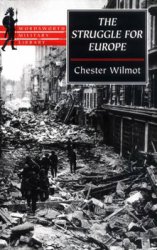Despite their contrasts in background, style, and personality, Kennedy and Johnson differed little in many aspects of foreign policy. Kennedy paid more attention to Latin America and to Africa, which, however, yielded only limited gains. Johnson never acquired Kennedy’s ease in dealing with foreign leaders and problems. Nor did LBJ acquire JFK’s comfort in his own skin. Although attracted to detente, both Kennedy and Johnson found difficulty in escaping the premises of Cold War policies codified in the Eisenhower and Truman eras. The confines of Wilsonian ideology narrowed what JFK and LBJ regarded as acceptable change around the world. They remained committed to the belief that the United States was an exceptional nation whose values and institutions offered the best model for others. The Vietnam War helped frustrate Johnson’s striving toward detente. If Kennedy had lived, he probably would have encountered Johnson’s difficulty of fighting in Vietnam to contain Communism while trying simultaneously to engage the Soviet Union.
Neither the prospects nor the problems Kennedy and Johnson perceived evolved as they had expected. The Alliance for Progress did not yield the economic growth or political stability that Americans had hoped would innoculate Latin America against more Castros. In spite of these setbacks, Castro failed to export his revolution. The NLF and North Vietnam refused to surrender despite the terrible pounding meted out in years of war. Nevertheless, the eventual US defeat in Vietnam did not pull down a long chain of dominos, as Kennedy and Johnson had feared. Notwithstanding Germans’ frustration at continued division, de Gaulle’s arguments for an independent Europe, and Bonn’s overtures to the East in the late 1960s, the FRG remained allied to the United States. As the labels "New Frontier" and "Great Society” suggest, the domestic and foreign policies of Kennedy and Johnson - like the decade of the 1960s - stand out in history for grand promises unfulfilled.




 World History
World History









